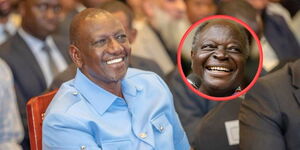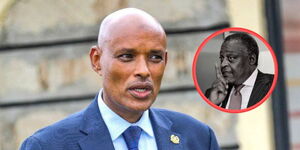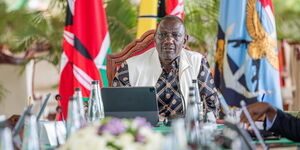For 12 years since 2018, all adults from the remote Kenyan village of Kogutu will be smiling all the way to the Bank as part of a study that saw a US charity offer them Ksh2,600 (USD22) universal basic monthly income.
At the time, GiveDirectly Charity was aimed at discovering how guaranteeing everyone to a basic pay was likely to upend their lives.
Five years later, Free Money Documentary filmmakers Lauren DeFilippo and Sam Soko are set to premier their film at the Toronto International Film Festival tracking how the adults spent the money.
“I went to Kugutu and was there at the beginning when they were rolling all of this out and introducing the idea.
“I quickly realized it was going to be more than a film about an idea — this idea of Universal Basic Income — but rather a character story that I wanted to make and just was totally out of my depth in doing that in a rural Kenyan village as a white lady. I really started early on looking for a collaborator and was lucky enough to find Sam Soko and somehow roped him into this," DeFilipo told Deadline, a US media outlet.
The filmmakers then began tracking the villagers as well as the officials from the Charity based in Manhattan, United States.
The project, valued at Ksh3.6 billion (USD30 billion), includes financing the Kenyan village alongside other financially challenged remote villages in other countries.
GiveDirectly co-founder Michael Faye noted that he was drawn into the Universal Basic Income (UBI) idea after studying various charities that failed in their missions to alleviate poverty.
Five years since the project kicked off, the charity was amused by how much the stipend uplifted the lives of the individuals.
An 18-year-old used the money to pay for his miscellaneous costs in Nairobi while attending college while another villager spent the funds to construct a well for the benefit of other villagers.
Another beneficiary channeled the funds towards the purchase of livestock, especially dairy cows, dismantling the notion that free money drives individuals to waste the cash on vices like gambling, drugs or alcohol.
“In the short term, we see pretty positive effects from UBI. When you talk to people in the village who are receiving the money, they say that it’s been hugely transformative.
"As skeptical as we both were going in, we saw the effects and we saw people’s lives being changed," added DeFilipo.
Kenyan CCN Correspondent Larry Madowo is also featured in the film offering his skepticism over the model.
"A key skeptic in the film is journalist Larry Madowo, who grew up in a Kenyan village and went on to travel the world as a correspondent for the BBC and CNN.
"Madowo has watched a litany of charities come and go in Kenya, including some that were outright harmful. He undertakes his own reporting on GiveDirectly to see how they compare," reads a description of the film.
GiveDirectly is a nonprofit organization that lets donors send money directly to the world’s poorest households.












